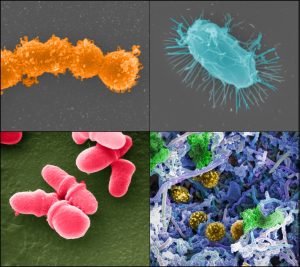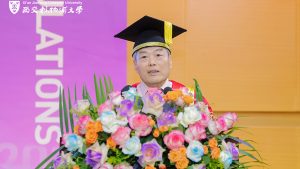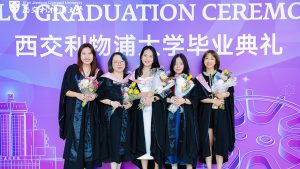22 Jul 2024
The third XJTLU Annual Education Transformation Conference at Xi’an Jiaotong-Liverpool University (XJTLU) gathered the University’s leadership and academic staff to discuss how generative AI empowers educational innovation.
Attendees discussed both generative AI’s opportunities and cautions for use in education. Representatives also shared how they have incorporated AI into their teaching practices.
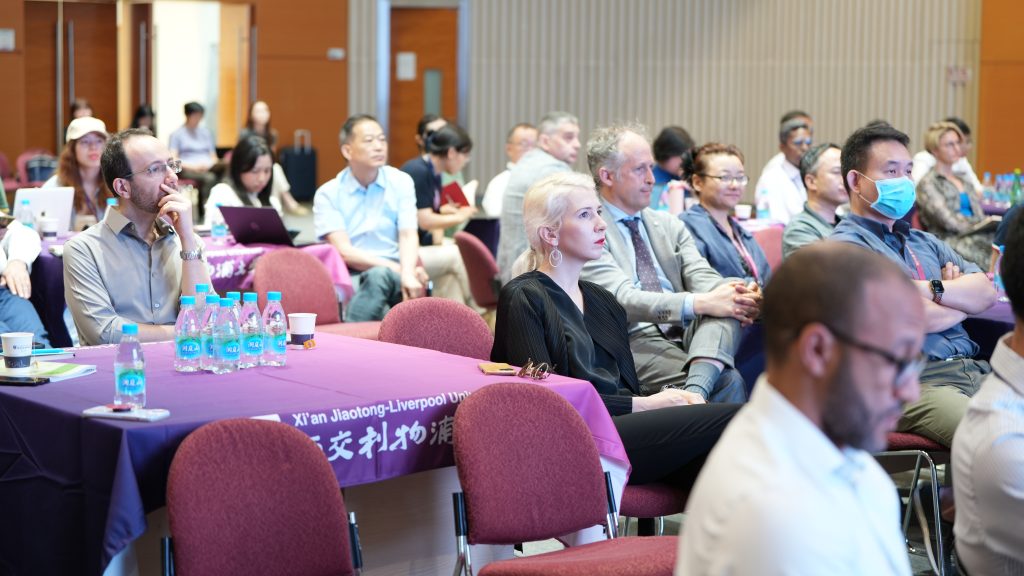
XJTLU staff at the Third Annual Education Transformation Conference
Study topic guidance
Xiangyu Hu, Assistant Professor of Practice at International Business School Suzhou, shared how a generative AI tool he and others at XJTLU are developing will help students choose research topics that are right for them and academically interesting.
Many students ready to choose topics have sought Hu’s advice because of the knowledge he gained during 22 years working in multiple industries. However, Hu and his colleagues found individually guiding so many students time consuming. He decided he could help students more efficiently with a generative AI tool, so he formed a task force to help develop one.
While the new tool is based on current commercial generative AI tools, it will be trained for the task at hand.
Tailoring the technology is important – otherwise, if students are not skilled in writing prompts or lack background knowledge, tools like Chat GPT provide only limited information, he said. “Therefore, we want to train our GAI (generative AI) tool to serve as a guiding teacher, helping students effectively find research topics that align with their interests and have academic value,” Hu said.
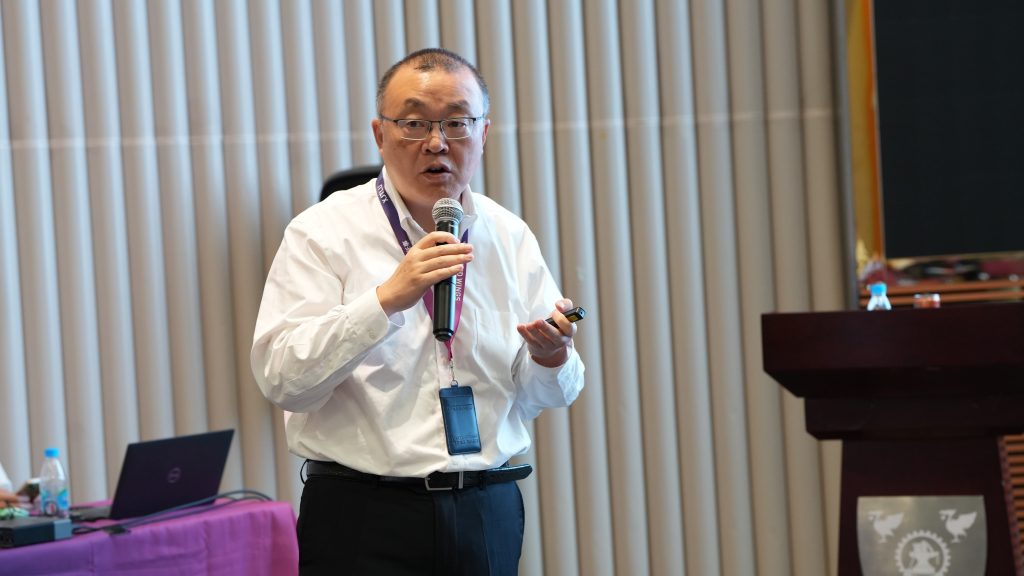
Xiangyu Hu presents about a generative AI tool to help students select research topics
Language learning assistance
Jinyang Song shared that most students in an English for Academic Purposes (EAP) course at XJTLU surveyed found generative AI tools beneficial for language learning. Song, Associate Language Lecturer at the School of Languages, said students highlighted information retrieval, grammar checking, and vocabulary acquisition as areas where the technology was most helpful. However, some students expressed concerns, like those related to information privacy, he said.
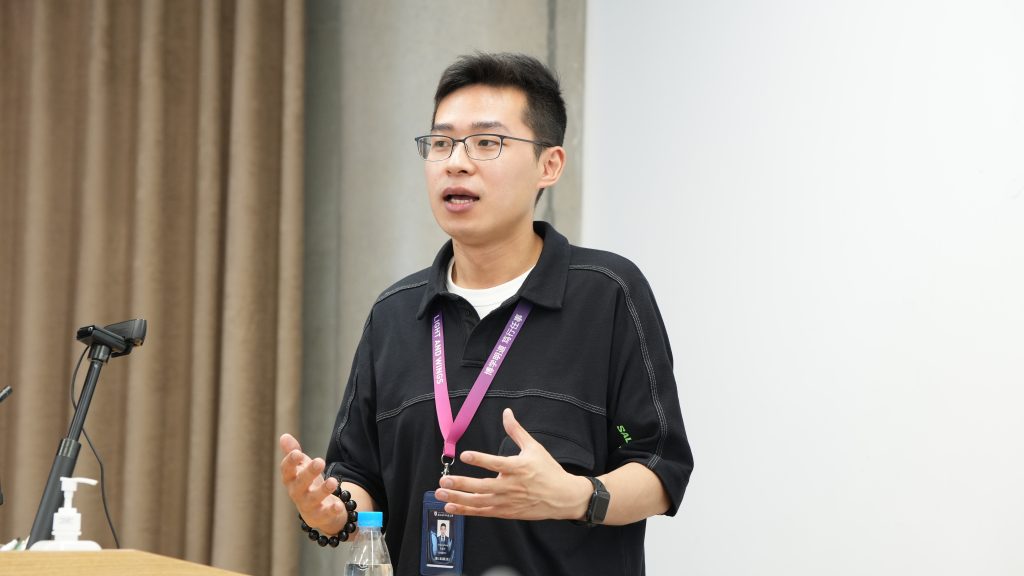
Jinyang Song shares results of a student survey about generative AI and language learning
“Students hope that the University can provide more guidance and support for the use of GAI tools. For example, they can be connected to the Learning Mall and other platforms to retrieve more useful information about the University and courses,” he said.
Song and other teachers from the School of Languages have been actively exploring the application of generative AI in courses and language learning since early 2023.
“I hope the University can provide customised training courses for students and teachers to enhance our adaptability to new technologies and tools, thus fully unleashing the potential of technology,” he said.
Considerations and concerns
Helen Beech, Dean of the School of Languages, and Yiqun Sun, Educational Developer at the Academy of Future Education, conducted a survey on AI literacy and acceptance among XJTLU teachers. Nearly 100 teachers from seven University schools participated.
According to the results, most teachers at XJTLU have a clear understanding of generative AI and can explain its principles in simple terms.
The research shows that teachers generally recognise the AI tools’ usefulness in preparing teaching materials and enhancing students’ engagement and interactivity. However, according to the survey, they tend to be hesitant when recommending these tools to colleagues.

A “road show” of AI-integrated courses
The research also highlighted the teachers’ ethical considerations related to generative AI, indicating that the instructors explain the use of AI tools in their teaching to students and actively seek to understand and address possible inaccuracies, biases, and risks that arise from using AI tools.
“As teachers deepen their understanding of AI, their attitude towards AI integration has gradually changed from cautious to critical,” Sun said. “Their concerns have become more specific, including University-level guidelines, academic integrity, training, the role of teachers, and students’ AI literacy.”
XJTLU Annual Teaching Seminar
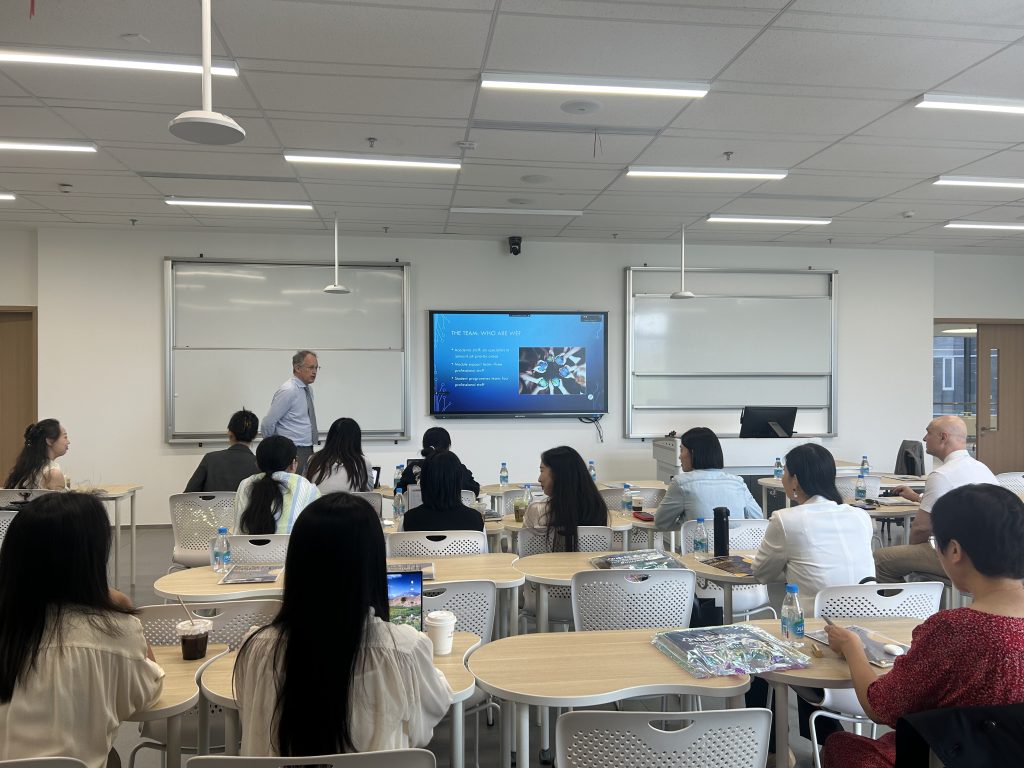
Professor Moritz Bilagher presents at the XJTLU Annual Learning and Teaching Colloquium
Nearly 60 teachers participated in the XJTLU Annual Learning and Teaching Colloquium, which was part of the conference.
Dr Moritz Bilagher, Professor of Practice at the Academy of Future Education, reviewed how XJTLU’s LIF001 module supports Year One students in transitioning to university. Rebecca Wakelin, Director of the Educational Development Unit, presented XJTLU’s new teacher training and professional development programmes.
Other topics covered at the seminar included holistic education innovation, integrating education and sustainable development goals, physical health and academic achievement, and becoming a global citizen.
By Bo Kou and Xiaoyan Jin
Translated by Xiangyin Han
Edited by Xinmin Han and Tamara Kaup
Photos courtesy of the Academy of Future Education
22 Jul 2024
RELATED NEWS
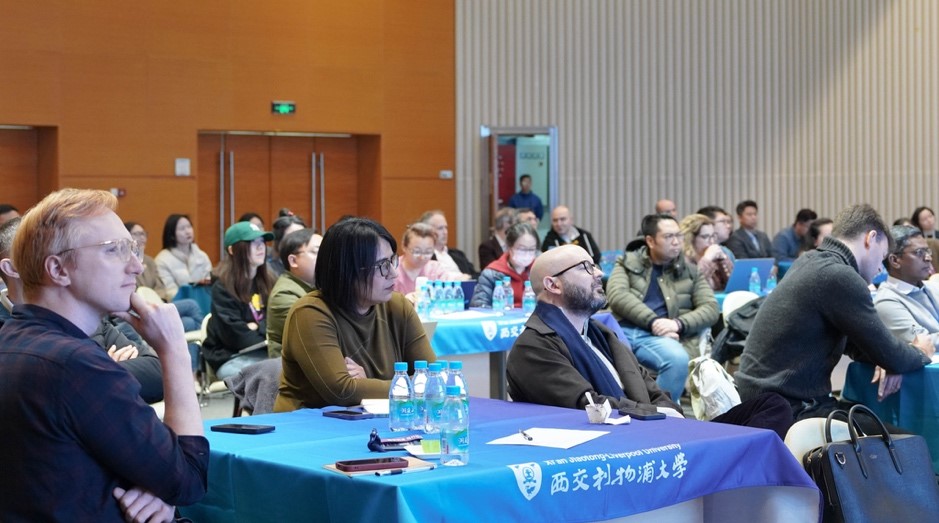
University launches project to extend AI-enhanced curricula
Xi’an Jiaotong-Liverpool University has launched an AI-Enhanced Curriculum Project, one of three key university-level projects this academic year. The pro...
Learn more

